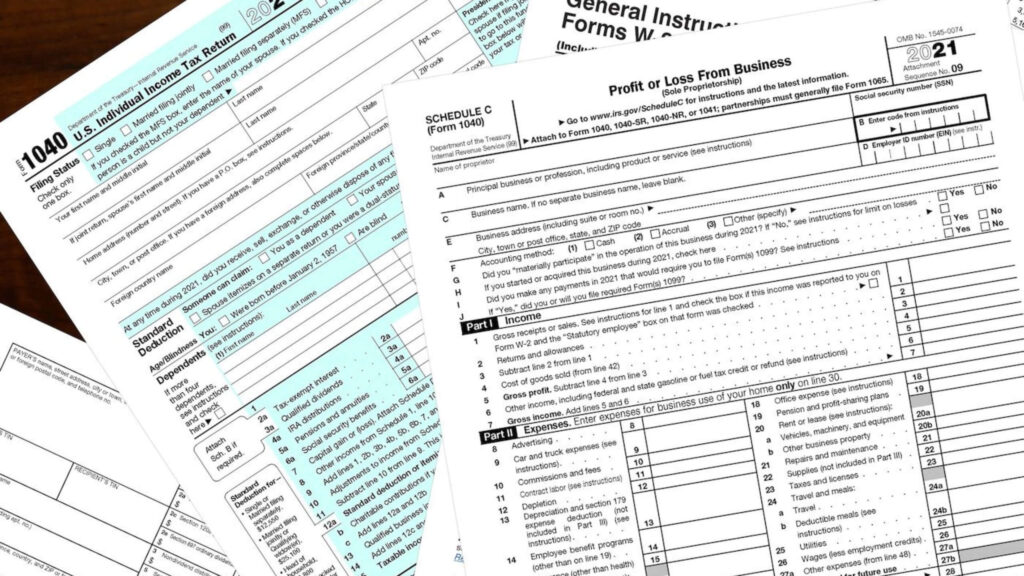Start a Business in California, Why? California is one of the most attractive and dynamic places to start a business in the world. With its diverse and innovative economy, large and affluent market, and supportive and entrepreneurial culture, the Golden State offers many opportunities and advantages for aspiring and established entrepreneurs.
However, learn how to start a business in California, that also comes with its own challenges and requirements. From choosing a legal structure and registering your business name, to obtaining licenses and permits and filing taxes, there are many steps and regulations that you need to follow and comply with.
Starting A Business In California
In this blog post, we will guide you through the essential steps and teach you about how to start a business in California, and help you avoid some of the common pitfalls and mistakes that new business owners make.
1: Plan Your Business
The first step on how to start a business in California is to plan your business idea and strategy. A business plan is a document that outlines the goals, objectives, strategies, and actions of your business. It helps you clarify your vision and mission, analyze your market and competition, define your value proposition and competitive advantage, and estimate your costs and revenues.
A business plan is also a useful tool to communicate your business idea and pitch to potential investors, partners, and customers. It shows that you have done your research and homework, and that you have a viable and sustainable business model.
There are many resources and templates available online to help you create a business plan, such as the U.S. Small Business Administration (SBA) website¹. You can also seek advice and assistance from local organizations and experts, such as the Small Business Development Centers (SBDCs)², SCORE³, and Women’s Business Centers (WBCs)⁴.

2: Choose a Business Structure
The next step to how to start a business in California is to choose a legal structure for your business. A legal structure determines how your business is organized, operated, taxed, and liable. It also affects your personal assets, ownership rights, management control, and financing options.
There are different types of legal structures available in California, such as:
- Sole proprietorship: A simple and common form of business where you are the sole owner and operator of your business. You have full control and responsibility over your business, but you also have unlimited personal liability for your business debts and obligations.
- Partnership: A form of business where two or more people agree to share the ownership and operation of a business. There are different types of partnerships, such as general partnerships, limited partnerships, and limited liability partnerships, which have different levels of liability and management rights for the partners.
- Corporation: A form of business where the business is a separate legal entity from its owners, who are called shareholders. A corporation has its own rights and obligations, and can sue and be sued, own and sell property, and enter into contracts. A corporation also provides limited liability protection for its shareholders, but it is subject to more regulations and taxes than other forms of business.
- Limited liability company (LLC): A form of business that combines the features of a corporation and a partnership. An LLC has one or more owners, who are called members, and can be managed by the members or by appointed managers. An LLC provides limited liability protection for its members, but it is more flexible and less complex than a corporation.
Each legal structure has its own advantages and disadvantages, and you should consult a lawyer or an accountant before making a decision. You can also find more information and guidance on the California Secretary of State website.

3: Register a Business in California
The third step on how to start a business in California is to register your business name. A business name is the name under which you conduct your business activities, and it is also the name that your customers and clients will recognize and remember you by.
There are two types of business names that you need to consider: a legal name and a fictitious name.
- A legal name is the official name of your business entity, such as John Smith LLC or ABC Corporation. You need to register your legal name with the California Secretary of State when you form your business entity, such as an LLC or a corporation. If you operate as a sole proprietorship or a general partnership, your legal name is your own name or the names of the partners.
- A fictitious name is the name that you use to identify your business to the public, such as John’s Plumbing or ABC Consulting. You need to register your fictitious name with the county clerk’s office in the county where your business is located, if it is different from your legal name. This is also known as doing business as (DBA) or trade name registration.
You should also check the availability and protectability of your business name before registering it. You can also use the California Business Search tool to check if your desired name is already in use by another business entity in the state or use U.S. Patent and Trademark Office (USPTO) website to check if your desired name is already trademarked by another business in the country. If you want to trademark your own name, you can apply for a federal or a state trademark registration.

4: Obtain Licenses and Permits
The fourth step on how to start a business in California is to obtain the necessary licenses and permits for your business. Licenses and permits are legal documents that authorize you to operate your business in compliance with the laws and regulations of the federal, state, and local governments.
The types and requirements of licenses and permits vary depending on the nature, location, and size of your business. Some of the common licenses and permits that you may need include:
- Business license: A general license that allows you to conduct business in a city or county. You need to apply for a business license with the city or county where your business is located or operates.
- Seller’s permit: A permit that allows you to sell tangible goods or products in California. You need to apply for a seller’s permit with the California Department of Tax and Fee Administration (CDTFA).
- Professional license: A license that certifies your qualifications and skills to provide certain professional services, such as accounting, law, medicine, or engineering. You need to apply for a professional license with the appropriate state board or agency that regulates your profession.
- Health and safety permit: A permit that ensures that your business meets the health and safety standards and codes of the state and local authorities. You may need to apply for a health and safety permit with the California Department of Public Health (CDPH), the California Occupational Safety and Health Administration (Cal/OSHA), or the local fire department, depending on your type of business.
- Environmental permit: A permit that regulates the environmental impact and compliance of your business, such as air quality, water quality, waste management, and hazardous materials. You may need to apply for an environmental permit with the California Environmental Protection Agency (CalEPA) or the local environmental agency, depending on your type of business.
To find out the specific licenses and permits that you need for your business, you can use the CalGOLD website, which provides a comprehensive and customized list of requirements based on your business activity and location. You can also contact the relevant federal, state, and local agencies for more information and assistance.

5: File Taxes and Employer Documents
The fifth step on how to start a business in California is to file your tax and employer documents. Taxes and employer documents are the forms and reports that you need to file and pay to the federal, state, and local governments, as well as to your employees, contractors, and vendors.
The types and requirements of taxes and employer documents vary depending on the legal structure, income, expenses, and payroll of your business. Some of the common taxes and employer documents that you may need to file include:
- Employer identification number (EIN): A unique number that identifies your business entity for tax purposes. You need to apply for an EIN with the Internal Revenue Service (IRS) if you operate as a corporation, an LLC, a partnership, or a sole proprietorship with employees.
- Income tax: A tax that you pay on the income or profit of your business. You need to file and pay your income tax with the IRS and the California Franchise Tax Board (FTB), according to the tax rates and schedules of your legal structure and income level.
- Sales tax: A tax that you collect and pay on the sales of tangible goods or products in California. You need to file and pay your sales tax with the CDTFA, according to the tax rates and rules of the state and local jurisdictions where you sell your goods or products.
- Payroll tax: A tax that you withhold and pay on the wages and salaries of your employees. You need to file and pay your payroll tax with the IRS, the California Employment Development Department (EDD), and the California Department of Industrial Relations (DIR), according to the tax rates and rules of the federal and state governments.
- Property tax: A tax that you pay on the value of the real and personal property that you own or use for your business. You need to file and pay your property tax with the county assessor’s office and the county tax collector’s office where your property is located, according to the tax rates and rules of the county and local governments.
To find out the specific taxes and employer documents that you need to file for your business, you can use the California Tax Service Center website, which provides a comprehensive and customized list of requirements based on your legal structure and business activity. You can also contact the relevant federal, state, and local agencies for more information and assistance.

FAQS on How to Start a Business in California
Q: How much does it cost to start a business in California?
A: The cost of starting a business in California depends on various factors, such as the type of business, the legal structure, the location, the licenses and permits, and the taxes and fees. Some of the common costs that you may incur include:
- Filing fees for forming your business entity, such as $70 for an LLC or $100 for a corporation, with the California Secretary of State.
- Filing fees for registering your fictitious name, such as $26 in Los Angeles County or $40 in San Francisco County, with the county clerk’s office.
- Filing fees for obtaining your seller’s permit, which is free, with the CDTFA.
- Filing fees for obtaining your professional license, which vary depending on the profession, with the appropriate state board or agency.
- Filing fees for obtaining your health and safety permit, which vary depending on the type of business, with the CDPH, Cal/OSHA, or the local fire department.
- Filing fees for obtaining your environmental permit, which vary depending on the type of business, with the CalEPA or the local environmental agency.
- Filing fees for obtaining your business license, which vary depending on the city or county, with the city or county where your business is located or operates.
- Filing fees for obtaining your EIN, which is free, with the IRS.
- Filing fees for filing your income tax, which vary depending on your legal structure and income level, with the IRS and the FTB.
- Filing fees for filing your sales tax, which vary depending on your sales volume and location, with the CDTFA.
- Filing fees for filing your payroll tax, which vary depending on your payroll size and frequency, with the IRS, the EDD, and the DIR.
- Filing fees for filing your property tax, which vary depending on the value and location of your property, with the county assessor’s office and the county tax collector’s office.
Q: How long does it take to start a business in California?
A: The time it takes to start a business in California depends on various factors, such as the type of business, the legal structure, the location, the licenses and permits, and the taxes and fees. Some of the common time frames that you may encounter include:
- Processing time for forming your business entity, such as 5 business days for an LLC or 15 business days for a corporation, with the California Secretary of State.
- Processing time for registering your fictitious name, which varies depending on the county, with the county clerk’s office.
- Processing time for obtaining your seller’s permit, which is usually immediate, with the CDTFA.
- Processing time for obtaining your professional license, which varies depending on the profession, with the appropriate state board or agency.
- Processing time for obtaining your health and safety permit, which varies depending on the type of business, with the CDPH, Cal/OSHA, or the local fire department.
- Processing time for obtaining your environmental permit, which varies depending on the type of business, with the CalEPA or the local environmental agency.
- Processing time for obtaining your business license, which varies depending on the city or county, with the city or county where your business is located or operates.
- Processing time for obtaining your EIN, which is usually immediate, with the IRS.
- Filing deadlines for filing your income tax, which vary depending on your legal structure and income level, with the IRS and the FTB.
- Filing deadlines for filing your sales tax, which vary depending on your sales volume and location, with the CDTFA.
- Filing deadlines for filing your payroll tax, which vary depending on your payroll size and frequency, with the IRS, the EDD, and the DIR.
- Filing deadlines for filing your property tax, which vary depending on the value and location of your property, with the county assessor’s office and the county tax collector’s office.
Q: What are the benefits and challenges of starting a business in California?
A: The benefits and challenges of starting a business in California depend on various factors, such as the type of business, the legal structure, the location, the licenses and permits, and the taxes and fees. Some of the common benefits and challenges that you may experience include:
Benefits:
- Access to a large and diverse market of consumers and businesses, with a population of over 39 million and a GDP of over $3 trillion.
- And, to a vibrant and innovative ecosystem of entrepreneurs, investors, mentors, and partners, with a strong presence of industries such as technology, entertainment, agriculture, and tourism.
- Access to a skilled and talented workforce, with a high level of education and diversity.
- Also, to a supportive and entrepreneurial culture, with a high level of creativity and risk-taking.
- Get access to various incentives and programs, such as tax credits, grants, loans, and technical assistance, offered by the federal, state, and local governments and agencies.
Challenges:
- High cost of living and doing business, with a high level of taxes, fees, regulations, and competition.
- A lot of complexity and variability of legal and administrative requirements, with different rules and procedures for different types of businesses, legal structures, locations, licenses, permits, and taxes.
- Increased risk and uncertainty of business success, with a high level of market volatility, consumer preferences, and environmental factors.
Explore the top reads to fuel business growth and innovation in 2024. Our curated list features the 7 best books that promise insights, strategies, and inspiration for entrepreneurs and leaders on the path to success.